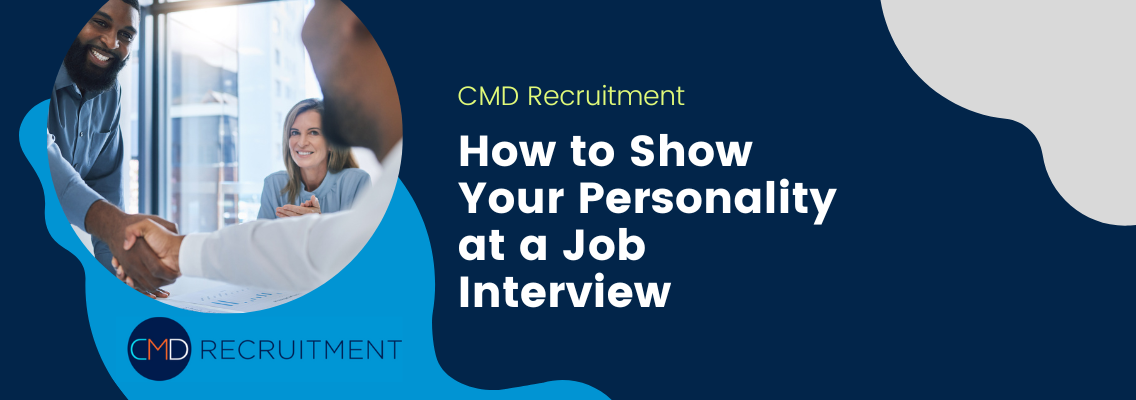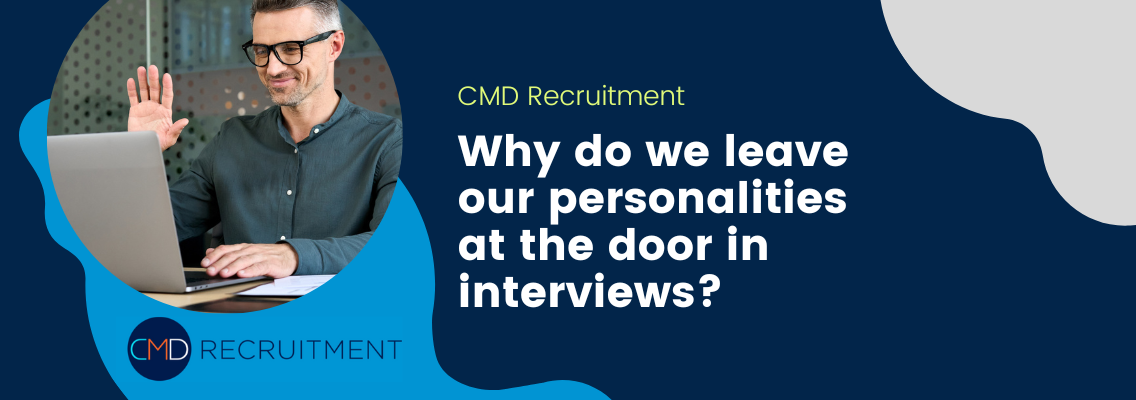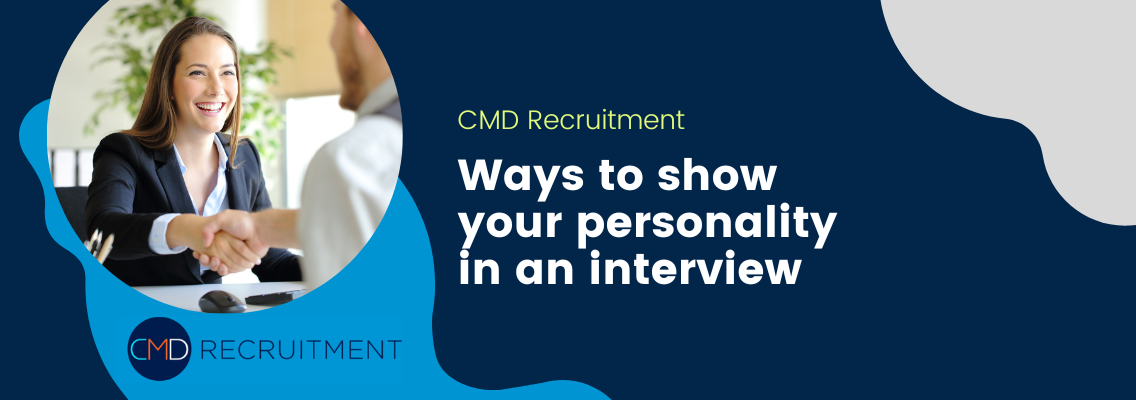Important notice - We are aware of a scam where people are impersonating CMD Recruitment to offer jobs via WhatsApp & Telegram. This is a scam, CMD Recruitment will never contact new candidates via these methods. Any legitmate offer from CMD Recruitment would be made via a telephone call.

March 22, 2023
Some roles require you to have the right personality to be able to succeed. For a sales role, you typically need to be a chatty extrovert, and for creative roles, you need to be able to think outside of the box and stand by your ideas. Your skills and experience are not the only things under the microscope during an interview, employers are also often looking at your personality, so you need to find a way to make sure this shines through.

A common problem that individuals face is when their nerves get the better of them and they become afraid to show their personality. This is a natural response to a fear of rejection. If you let your personality shine through and you don’t get the job, you might feel like it was your personality that they didn’t like.
However, if you don’t let your true personality shine through, you run the risk of the employer thinking that your nervous persona is just your normal personality. This could lead them to think you lack the confidence to succeed in the role. While it might be scary to be our authentic selves in an interview setting, it’s the only way to give the employer an accurate view of who we are and what we have to offer.

Now we know why it’s important to show personality in an interview setting, let’s explore some of the ways to get your personality across during an interview.
Our clothes say a lot about us, so your choice of outfit will speak for you, even if you leave your personality at the door. You can afford to show your personality in your choice of interview attire and still keep things professional.
A sharp and serious suit says that your personality is all business. But when you add a smart/casual accent, it might help you to relax. Women can show their personality with accessories, hairstyles, handbags and shoes.

Your body language is another unconscious form of communication. Allow your body language to be completely natural and you will be able to project a confident personality.
Extroversion isn’t the only way to be in an interview, introverts are also welcome to share their personality. Introverted body language might be more restrained and considered.
Obviously you need to speak in your own voice, it’s the only one you have. But you’d be surprised how many people adopt new mannerisms in an attempt to be more professional and polished.
This usually happens when you have practised job interview questions until you are blue in the face and no longer remember what your own voice sounds like. Remember to be your authentic self when speaking to the interviewer.

If your personal stories are relevant to the job and the questions asked, don’t be afraid to mention non-work related examples in your answers. You could talk about your hobbies or other things you enjoy doing outside of work.
When you are asked situational interview questions, the answer doesn’t have to include a work story and you can absolutely share examples of times you have demonstrated these essential skills and qualities outside of work.
Nothing will conceal your personality more than nerves. When we’re nervous, we are often hyper-aware of our words and actions, which can lead us to tone things down completely. When this happens, we lose the parts of our personality that make us unique. Learning how to relax in an interview setting is one of the best ways to make sure that you can let your personality shine through.
You can also allow your sense of humour to show up. A lot of people are scared to make jokes or have a sense of humour in a job interview because they are afraid of looking silly. Remember that the interview panel are just people, and they will love speaking to someone who can make them laugh at an appropriate moment.
Being seen as more personable could help you to land the role, so pay close attention to how you act and speak in interviews.
Back to Blog